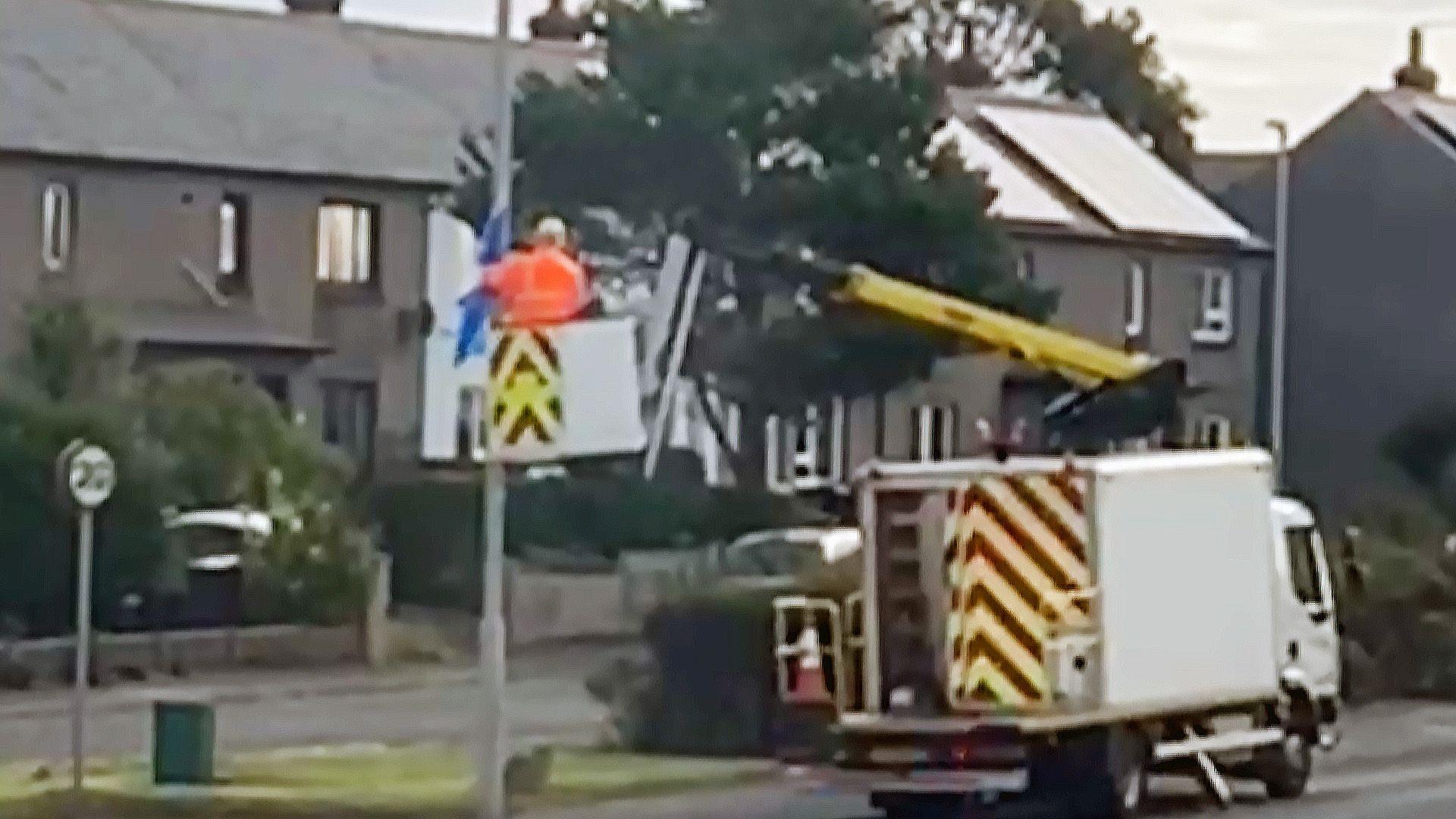Council to remove flags near asylum seeker barracks
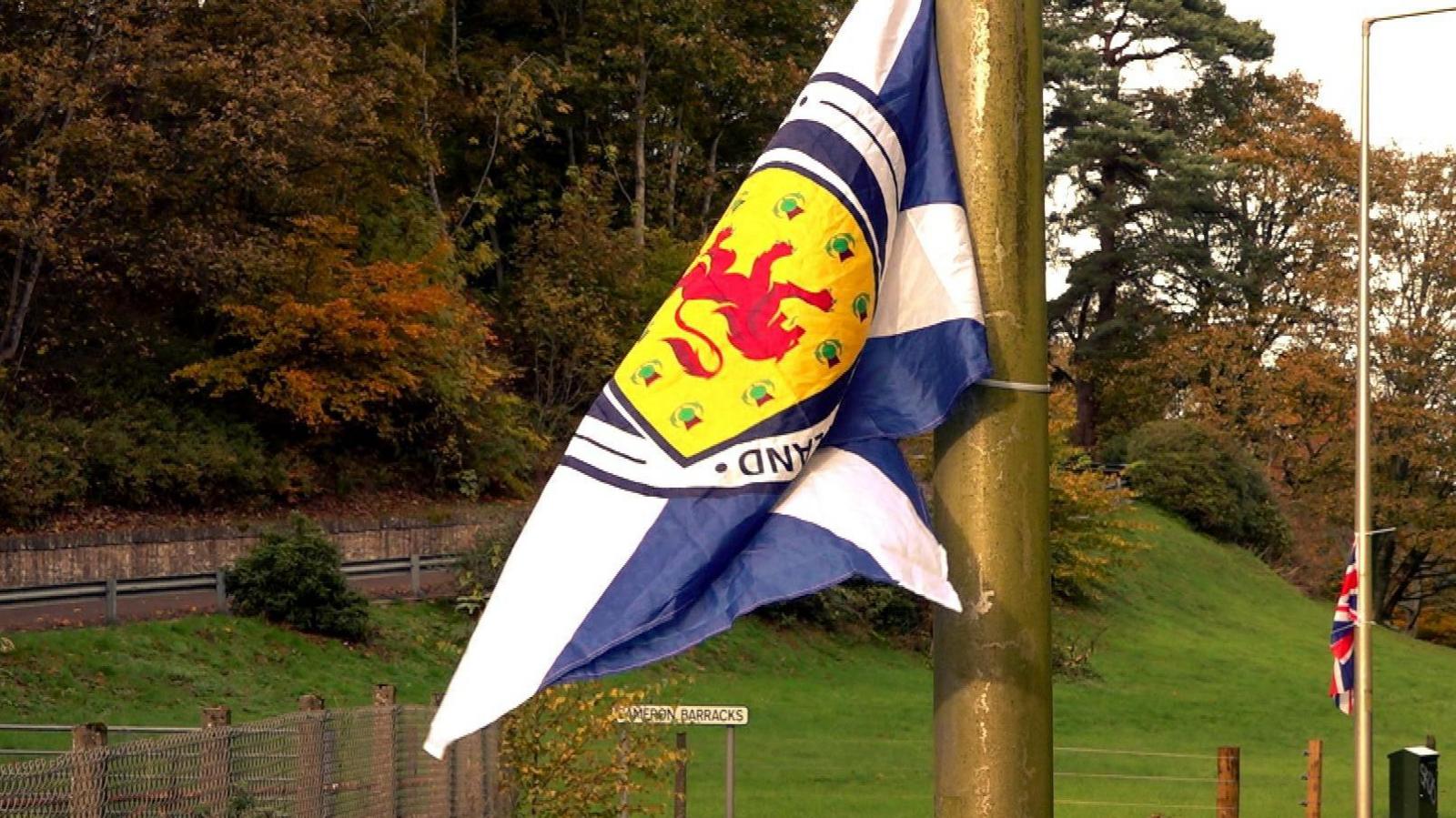
Flags have appeared on a road near Cameron Barracks in Inverness
- Published
Highland Council says flags will be removed from lampposts near an Inverness army base the Home Office plans to use as accommodation for asylum seekers.
A Union flag and a Saltire have appeared on the city's Old Perth Road.
Highland Council said it had a "zero tolerance" approach to unauthorised signs, stickers and banners on its lampposts.
The UK government has proposed temporarily housing about 300 men in phases at Cameron Barracks, near Inverness city centre.
Minister 'recognises strength of feeling' on asylum seeker housing plan
- Published29 October
Backlash over plans to house 300 asylum seekers at Inverness barracks
- Published28 October
The battle for Scotland's flag: Why the right has adopted the saltire
- Published9 October
Highland Council said it had been notified of a flag.
A spokesperson said: "We have a zero-tolerance approach to any unauthorised attachments to our lighting columns be it signs, stickers, banners or anything else.
"We will arrange for the removal of this flag."
Union and Saltire flags have been erected at locations across Scotland in recent weeks, and this has been linked to anti-immigration sentiment.
Aberdeen, Peterhead and Falkirk are among the places where flags have been flown.
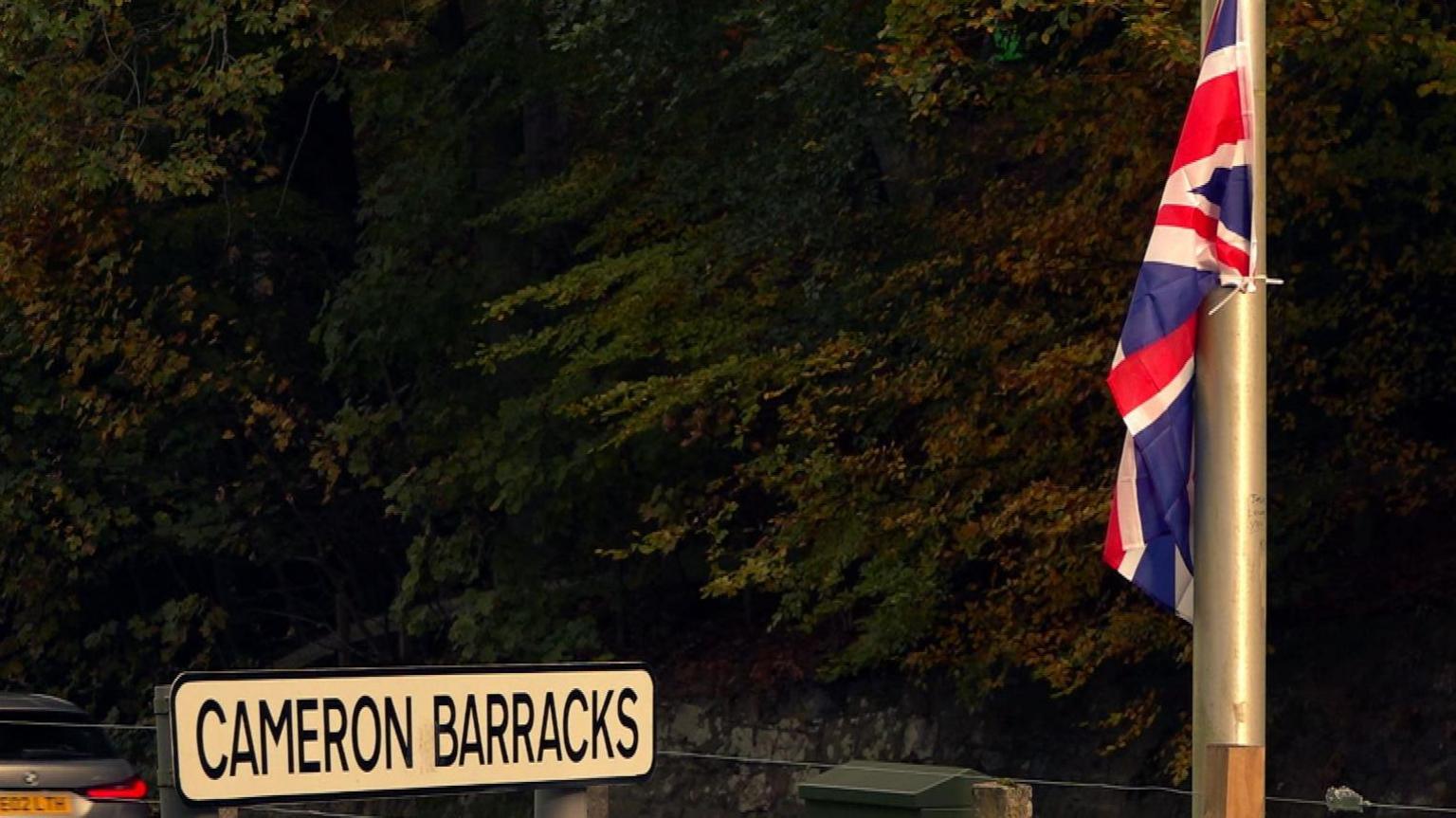
Highland Council said it had a zero tolerance approach to unauthorised attachments to its lampposts
Meanwhile, it has emerged that the Scotland's Social Justice Secretary Shirley-Anne Somerville raised the possibility of increased community tensions in a letter to UK Home Secretary Shabana Mahmood on Wednesday.
The letter contained a series of questions about the suitability of Cameron Barracks, the support required for asylum seekers and the cash available to offset the impact on local services.
Somerville also specifically asked "how potential increases in local community tensions will be managed and what plans are in place to support local community cohesion impacted by this decision and the lack of engagement".
Home Office minister Alex Norris has insisted his officials have engaged with the Scottish government and local service providers and wants to "minimise" the impact on the community.
On Wednesday, Norris told MPs that the military sites were among a number of options being looked at to end the use of asylum hotels.
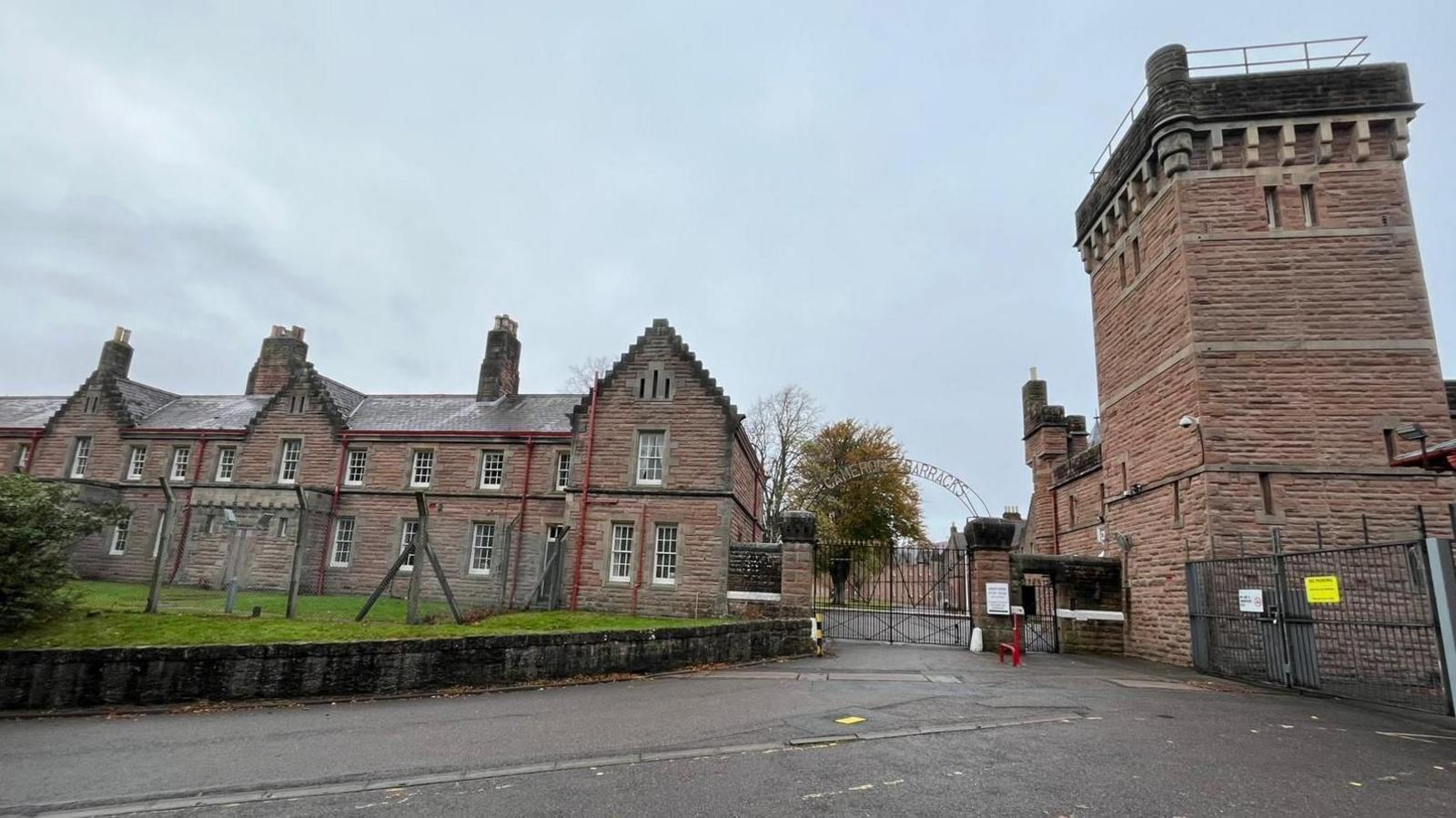
Cameron Barracks was constructed 140 years ago
Later in the Scottish Parliament, Social Justice Secretary Shirley-Anne Somerville criticised the decision-making and lack of communication from the UK government.
She said she first heard of the plans in September and wrote to the Home Office with concerns at that time but did not receive a reply.
"I have been clear with the Home Office that these plans must fully consider the impact on the local community, and the appropriateness of the site to accommodate this group of people," she said.
Somerville said the Scottish government had sought assurances that the barracks would have capacity to meet the asylum seekers' needs.
She said Scotland had welcomed refugees and asylum seekers and urged the UK government to collaborate with Scottish authorities on the proposals.
Meanwhile, Scottish Labour leader Anas Sarwar warned against people responding to the plans with fear.
He said: "We have to be very, very careful that we are not magnifying a message that too many on the far-right want to portray every single person waiting for a decision by the Home Office as somehow a threat to our communities and our society."
He defended the Home Office decision to use the barracks as the consequence of a "broken" asylum system.
Highlands and Islands Conservative MSP Edward Mountain said his constituents were concerned about additional pressures on health services.
Senior Highland councillors, the Scottish government and local politicians have raised concerns about the suitability of the barracks, and refugee charity Care4Calais has also condemned the plan.
Related topics
Related internet links
- Published20 September

- Published11 September
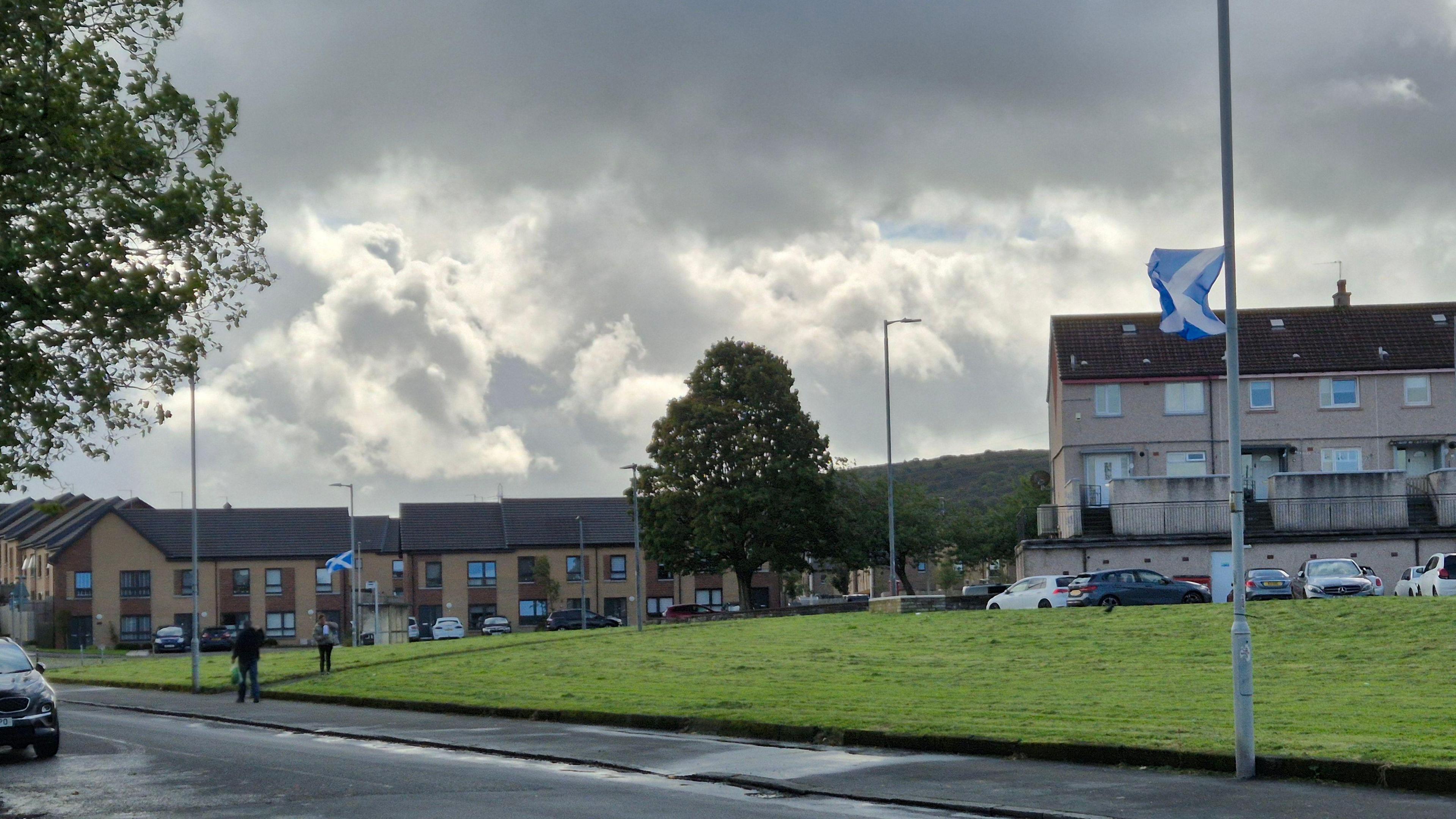
- Published4 September
